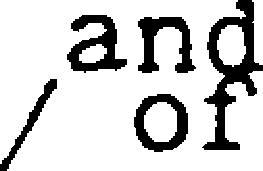95
of the early ,70,s. A young teacher and ex-student wrote
In the current political climate I think the Alter-
native Course is vital in producing teachers strong
enough to take what is going on out there. (Jones
1981 P33)
This
indicates that
school-based should
not mean ready acceptance
of the values and ways of behaving that inform education in schools.
Nor should teacher education with or
without partnership work to
promulgate
educational
paradigms more
suitable to quite distinct
economic and political climates.
Either might produce easy solutions
to
the experience of role conflict and tension but the necessity
is to accord it recognition in professional education.
A third group of findings of the Sussex Research pointed to institu-
tional factors which require recognition in the structures and
processes of teacher education. They are the importance of the sub-
ject
method
department

the
student
sub-culture that underlies
formal PGCE structures ie. the different social strategies employed
by students in the school and in the university.
In /Sussex research as for Patrick a decade later the subject method
department was seen as pivotal in the structure of the university
based PGCE and the students’ experience of it. This was no less
the case for the Alternative Course which involved separate subject
method
departments
but retained
their
distinctiveness 2 keeping the
subj ect
department as a major teaching
base for students and
HI
aking
the students
subject the main criterkn for teaching practice experi-
ence .
The thrust of the innovation was
linking quite distinct method
departments through their experience of
school-based work.
The first point to note is that the Experimental
Group accepted the idea of a Core Group as the organ-
ising framework:
More intriguing information
1. The name is absent2. Handling the measurement error problem by means of panel data: Moment methods applied on firm data
3. Mergers under endogenous minimum quality standard: a note
4. The Trade Effects of MERCOSUR and The Andean Community on U.S. Cotton Exports to CBI countries
5. The Value of Cultural Heritage Sites in Armenia: Evidence From a Travel Cost Method Study
6. The name is absent
7. The name is absent
8. Sex differences in the structure and stability of children’s playground social networks and their overlap with friendship relations
9. The name is absent
10. The name is absent